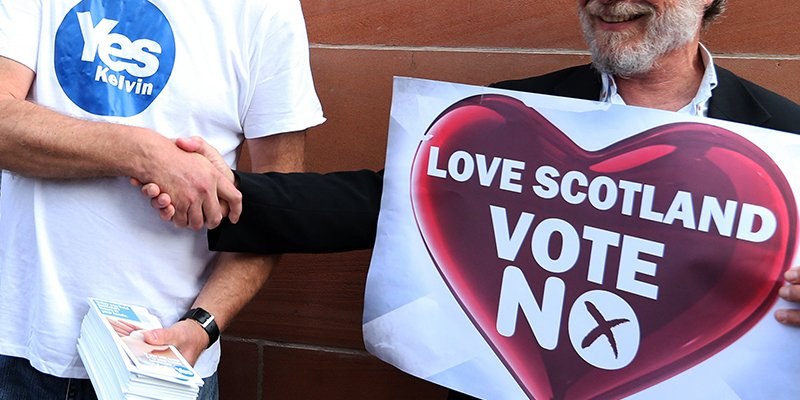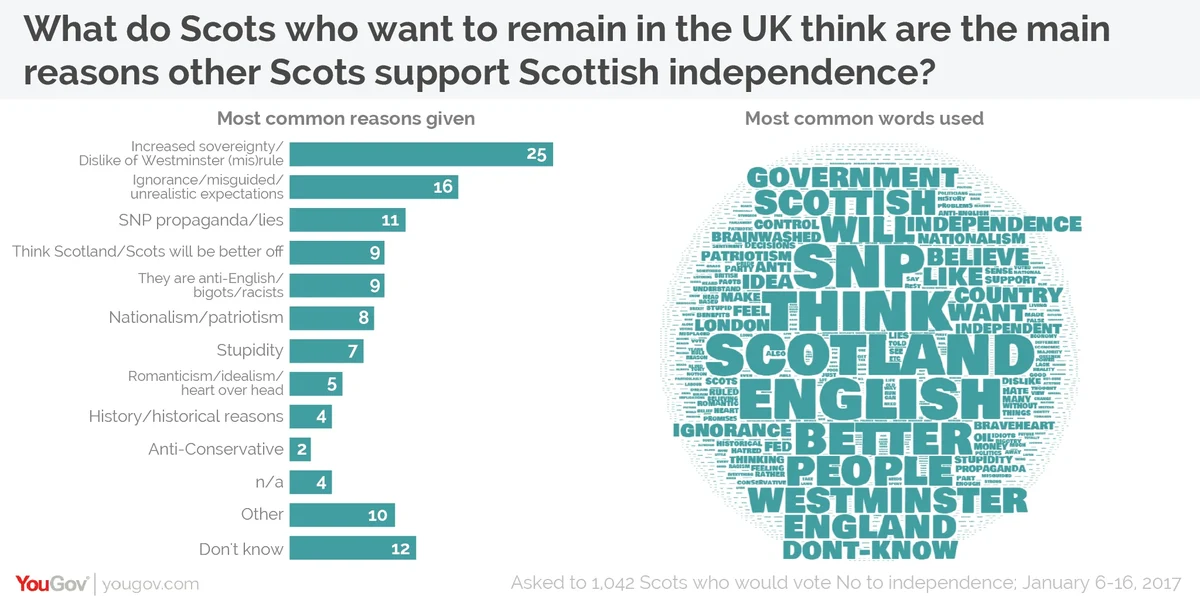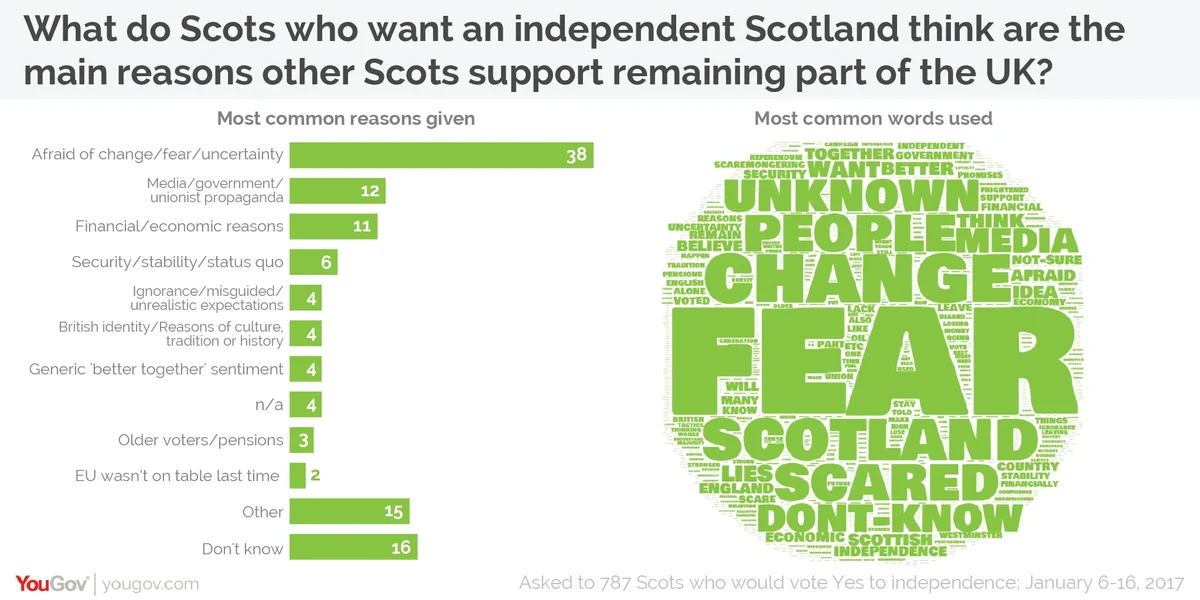YouGov uncovers what Scots on both sides of the independence debate think motivates their opponents
This article originally appeared in The Times Red Box
Last December, YouGov looked at what Leave and Remain voters at the EU referendum thought the main motivations for their opponents’ vote were. Now, with a second Scottish independence referendum looking more likely following Nicola Sturgeon’s speech on Tuesday, YouGov has now replicated this study for both sides of the independence debate.
The research, conducted in January, asks Scots whether they would vote Yes or No to independence in a second referendum before exploring what they thought motivated their opponents’ voting choice.
Those who want to remain part of the UK on those who want an independent Scotland
The most common reason No supporters believe people backed independence was that Scots wanted to be able decide how to rule themselves (25%). Aside from generic responses that wanted to rule themselves, a common theme in this category is the perception that Yes supporters are dissatisfied with Westminster rule (or misrule), including perceptions that England is too politically different, ignorant of Scottish needs, or has been appropriating Scottish wealth for itself.
Click to enlarge
In contrast to the perceived desire for sovereignty, only about one in ten (9%) No supporters think that people who wanted independence were motivated by the belief that Scotland would be better off as a result of leaving the Union.
Those who wanted to stay in the UK were more likely to call into question the judgement of their opponents than vice versa. The second most common response from unionists (16%) is that Scots who want to leave the UK are ignorant or misguided, whilst a further 7% believe them to be outright “stupid”. These accusations were only levelled at No by about 4% and 1% of Yes supporters respectively.
Other factors that those who wanted to stay in the UK suspect encouraged people to vote for independence include the belief that they are motivated by anti-English bigotry, nationalism, or some form of rose-tinted romanticism (the movie Braveheart was brought up by 2% of No supporters in their responses).
Those who want an independent Scotland on those who want to remain part of the UK
For those who want to see an independent Scotland, one factor stands head and shoulders above the rest in explaining why people voted No in 2014: fear.
Better Together’s campaign strategy was nicknamed “Project Fear” but whether or not it created a new fear, or merely exploiting an existing one, will probably never be known. Nevertheless, 38% of people backing independence believe that fear was a primary motivator for No supporters wanting to remain in the UK – by far the most popular reason.
This does not include financial or economic concerns (which 11% of Yes supporters think motivated their opponents), but rather a perception of a more reactionary fear of change and the unknown on the part of No supporters.
Click to enlarge
Just 4% of those wanting independence believe that Scots want to stay part the UK because of a sense of British identity or due to cultural, traditional or historical reasons.
Fake news for indyref2
One thing a significant minority of Scots on both sides have in common is a belief that the debate around independence is corrupted by their opponents’ propaganda and lies.
Around one in ten (11%) No supporters blame pro-independence sentiment on SNP “propaganda” (about a quarter of these used the term “brainwashed” specifically). Similarly, 12% of Yes supporters blame “lies” and “propaganda” by the media and the British government for convincing Scots to remain part of the UK. These were the second and third most common reasons given by each side respectively.
As with Brexit and the US general election, it looks like any second Scottish independence referendum campaign would be fought with the mistrust that is characterising modern politics.
Photo: PA












